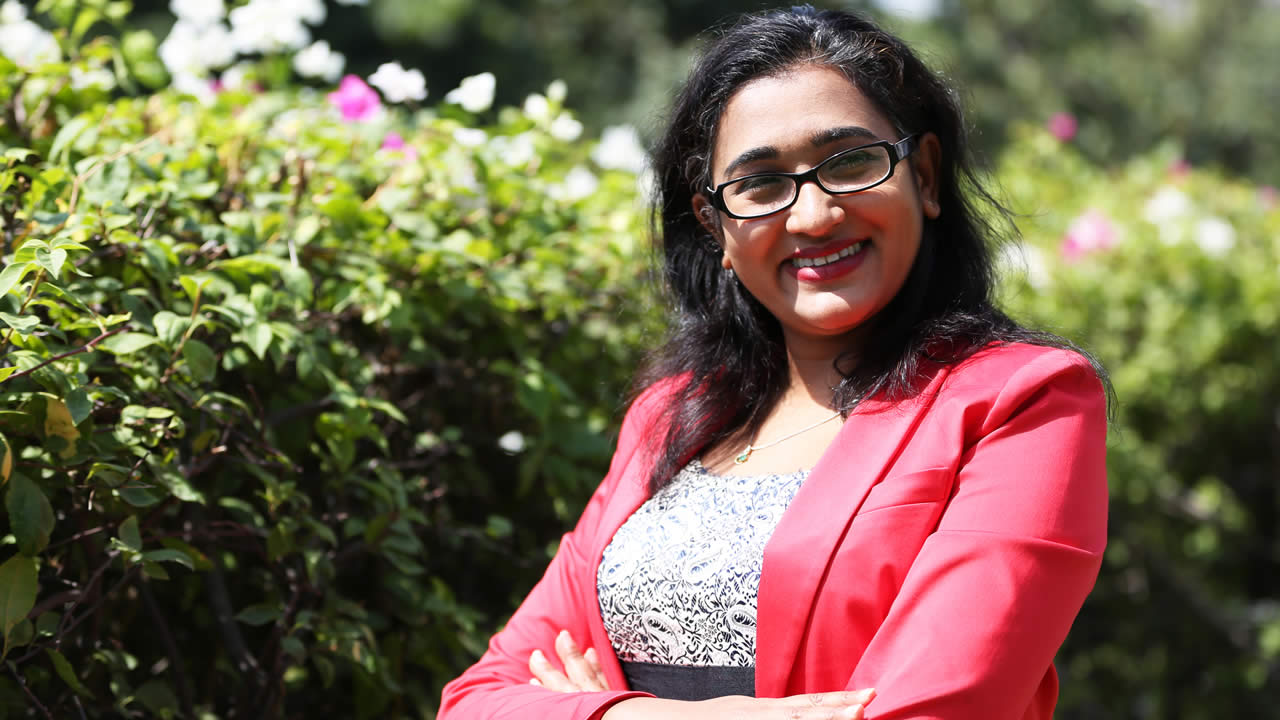
The killing of an 11-year-old child shocked the Mauritian nation, an incident which unfortunately mirrors the escalating crime rate and other social ills in our society. As a deeply concerned citizen, Manisha Dookhony, Economist & Managing Partner - Rwenzori Consulting and Founder member of Mauritius Society Renewal & Nou Repiblik, provides some recommendations about how to prevent further social infamy.
Murder of an eleven-year-old child, rape, violence, larceny…the list goes on. What explains this up-rise of criminality?
Last year, one of my cousins was brutally murdered. A month ago, my neighbor was killed and the murderer gave the gruesome account of how he killed her in extremely horrible conditions. When you experience such atrocious crimes in such proximity, you do feel that there is an increase in criminality. There are several factors that have contributed to it. First, we are living a dire state of drug consumption in the country and this phenomenon has permeated all levels of the society, even primary school kids. There are also high levels of alcohol abuse. The recent murder of the 11-year-old child was also unfortunately linked to alcohol abuse. In the murder of my neighbor, the murderer also said that he had been drinking before committing the crime. It is not uncommon for criminals to state that they had been under substance or alcohol abuse at the time of committing a crime.
The problem is compounded by high levels of jealousy and a certain level of suppressed tension across the country. As a result, there seems to be a normalization of violent behavior between people who are in close contact with each other. I am not a specialist on the subject but I leave it in the hands of those who are, to test if this could be the result of cumulative emotional and psychological wounding over a lifespan and across generations. Perhaps the criminals, today, had faced abuse themselves earlier in life when violence against children, such as hitting kids at home and school for ‘correction’ were more socially acceptable. Perhaps they have also been witnesses of violence from the time when little or no domestic violence cases were reported.
Increasing evidence and studies conducted internationally have revealed that early exposure of children to violence, including media violence, is a contributing factor to the development of adult aggressive behaviour."
Increasing evidence and studies conducted internationally have revealed that early exposure of children to violence, including media violence, is a contributing factor to the development of adult aggressive behaviour. These studies also report significant relations only for boys. There is a theory that when exposed at a very early age, they start to become desensitized to the fact and consequences of violence. For the media for example, people in Mauritius were less conscious of the consequences of violence 30 years ago and advisory on parental guidance for movies, for instance, is a new phenomenon.
Can we say Mauritius has lost the essence of a safe haven?
In some sense yes, people are often scared of being assaulted. Personal safety and safety of one’s property are major concerns for people in Mauritius. Recently, a friend was assaulted at knifepoint while she was visiting Pamplemousses garden with her young child in her arms. It seems that criminals are not even scared of locations where there are lots of visitors, nor do they seem to care about the consequences of their act on children. When such assaults happen in such tourist locations, it makes us also apprehensive about the tourism industry. Thankfully until now, we have been spared violent assaults such as mass killings, gun violence, terrorism, gang violence or kidnapping.
We also note a defragmentation of family ties and among neighbours. Why is that so?
Fragmentation is the opposite of social cohesion. We find that across our society, the bonds that bring people together are weakening. This could be because the connectedness among individuals and social groups is diminishing perhaps because of enhanced focus on other aspects of life, work, television, alcohol, focus on competition, social and personal frustrations. As a direct consequence, even the social cohesion between relatives and with immediate neighbors has suffered.
Are we heading towards a severe social degradation?
The moral compass of people seems to have gone haywire and indeed, we do fear a severe social degradation, and this is exacerbated by expanding social fragmentation.
Have the authorities failed in their task?
More than the authorities, it is the society itself that is failing the people. Often the criminals have been displaying increasing levels of violence with those around them. If those in their immediate environment do not raise the alarm, then we cannot blame the authorities.
An important work that authorities could do is to empower local groups and community leaders to intervene and alert in case of repeated and escalating violence. We need to guide and advise women and children who are often the victims of such types of violence. This could be in the form of sensitization campaigns or education in various forms to identify and make a distinction between normal and violent behaviors and to guide the women and children on the recourse they could have.
Authorities need to realise that the problem is far deeper. Increasing levels of social tensions have exacerbated the visibility of income inequality between the poor and those who are well off. As a result, there is a real feeling that access, rights and privileges are not evenly distributed. This further enhances the recourse to violence and crimes. Stealing, for instance, is felt as a necessity for many. Unfortunately, someone may start by petty theft and that can escalate into more violent crimes, especially during a theft the owners are around.

Enforcing existing laws or putting more modern criminal investigation techniques to be able to locate and identify criminals may be more appropriate. The time for delivery of justice should also be considered."
Is it high time to come forward with extreme measures against criminals?
There is already a wide range of legal framework to tackle crime. Do we need more extreme measures? Are more severe penalties the solution? I am not so sure. We have seen that in the case of drugs, strong repression has led to more complexity. By repressing and enacting heavy measures against the use of Cannabis, we have created the ideal breeding ground for synthetic drugs. And regrettably, these synthetic drugs, being more affordable, have found their way to reach the school population and have permeated within schools.
Enforcing existing laws or putting more modern criminal investigation techniques to be able to locate and identify criminals may be more appropriate. The time for delivery of justice should also be considered. In 2013, Janeeta was killed near the Citadelle in Port Louis. The killer gave a detailed account of his crime in March of 2013. Yet the trial was heard only in 2019, and the verdict will probably fall by 2020 if not later. In cases where there is more investigation to be done, the delivery of justice is much longer. Delivering justice sooner would have had a more visible and dissuasive impact. Perhaps there are too many cases that go to the Supreme Court and this leads to an increase in the waiting time of trials. As such, more work needs to be done to offer a quicker delivery of justice.
Prevention, sensitization and education at all levels and outside of schools is urgent. Awareness of early warning signals can help prevent violence. The Police force has already started sensitization and education campaigns. That is good, more resources should be given to such campaigns. Similarly, more support should also be given to the victims of violence and their family.
There is a rejuvenation of delinquency in recent years. Is it time for schools to emphasize on moral values in parallel with academic teaching?
It is a pity but despite free education, and a very high expenditure on the Education system, the recent Global Competitiveness Report notes that there is limited participation in the various levels of the educational system with only 6.8 mean years of schooling in Mauritius. There is therefore no doubt that this is one of the major causes of delinquency. The first thing would be to bring those who are left behind or out of the system back within academic or vocational training. It is only then that we could work on moral and ethics of those who are within institutions.
Do you think that the advent of social networks and technology has trapped our young people in a bubble?
Social media is often cited as the wicked one, but there is a lot of good if used properly. Unfortunately, that is not always the case and it is entrapping many of the young and the less young into an artificial world. I have seen young people meeting, but having no conversation, instead each one has their nose stuck to the screen… Despite the appellation of ‘social’ network, such technologies have been at the cost of real socialization between people.
Teenage pregnancy is another social ill. What are your views on this issue?
We should start by being serious on providing sex education, and sensitization to the youth. During my time in school, our own teachers were too prudish to even talk about reproduction, let alone having a real comprehension of sexual education. I remember our teacher skipping the chapters on reproduction, saying you can read it on your own. I understand that parents also don’t want this topic to be talked about, for fear of creating sexual awareness that can lead to experimenting. We cannot prevent the youth from experimenting sexually. We can also not prevent the young from being active from a younger age. It is better to teach teenagers, and openly talk about the consequences and make different forms of contraceptives more accessible.
Otherwise, as a member of the Mauritius Renewal Society and Nou Repiblik, what are your recommendations to turn things around?
With Mauritius Society Renewal, we are working on several aspects relating to social cohesion. We realise that the lack of social cohesion is dangerous for our country. One of the most visible aspects of fragmentation is housing. We are therefore organising a workshop in the beginning of December to bring relevant stakeholders together to engage in a conversation around why it is important to rethink our ‘housing policy’. We shall gauge the constraints and opportunities the country faces in ensuring that no citizen is left behind when it comes to the question of housing. This workshop is primarily to extract innovative ideas and solutions to these issues.
With Nou Repiblik, we recognise that issues are very interrelated, as such we are developing a more comprehensive ‘projet de société’ with a very strong social component. We have started the process of identifying issues and meeting with key experts to develop possible solutions to those problems. We know, from our engagement on the ground, that safety is one of the major concerns of people in Mauritius. We are looking at options and also doing benchmarking exercises to understand how it is being tackled elsewhere. We are cognizant of the intricacies and thus are looking at these issues in a comprehensive manner. For example, we are of the view that we cannot have a solution to issues of safety without looking at Drug, Alcohol and Tobacco policies together and we cannot have real social cohesion if we do not tackle the root causes of poverty.
 J'aime
J'aime













